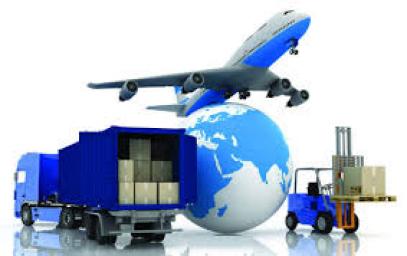Economic Connections: From Many Places
People need many things. In some countries, people can get much of what they need. But they still need to get things from other countries. If you look at the labels of food in the grocery store, it is like a geography lesson. You will find foods that come from many other places. Long ago, people used to just eat what they could grow or find in their own area. Today, people can get foods from all around the world.
Much more than food comes from different countries. For example, in the United States we do not have any rubber trees. Those trees need a warm, hot climate. So we get rubber from other countries. One country that sells rubber is Brazil. So if you have a ball or even an eraser that is made of rubber, it started out on a tree in a warm country. Factories in the United States use rubber to make tires.
When a country gets something from another country, it is an import. In Canada it is too cold to grow lemons. So people in Canada get lemons that come from the United States and other countries. They import the fruit. So if you buy lemonade in Canada, it comes from another country. When a country sells something to an other country it is an export.
Canada has a lot of electricity. Canada has great rivers. People built dams across them. A dam is like a wall. The dam has wheels on it. Those are water wheels. When the water rushes through them, it turns the wheels. The wheels make electricity when they turn. Canada uses electricity to make things.
Some Canadian factories make aluminum. That is a useful metal. It takes a lot of electricity to make it. But the Canadians do not have bauxite. That is an ore. That is something found under the ground. Canadian factories get it from mines. But the mines are not in Canada. They are in Jamaica.
If you have a bicycle, it may be made from aluminum. And it probably has rubber tires. That bicycle may have been made in the United States. But its parts come from other places. That one bicycle may have parts from Brazil, Canada, Jamaica, and the United States.
The same kinds of connections are part of many cars. Long ago, cars were made mostly in the United States. Now cars are made in many countries. But wherever they are made, they have parts from different places.
